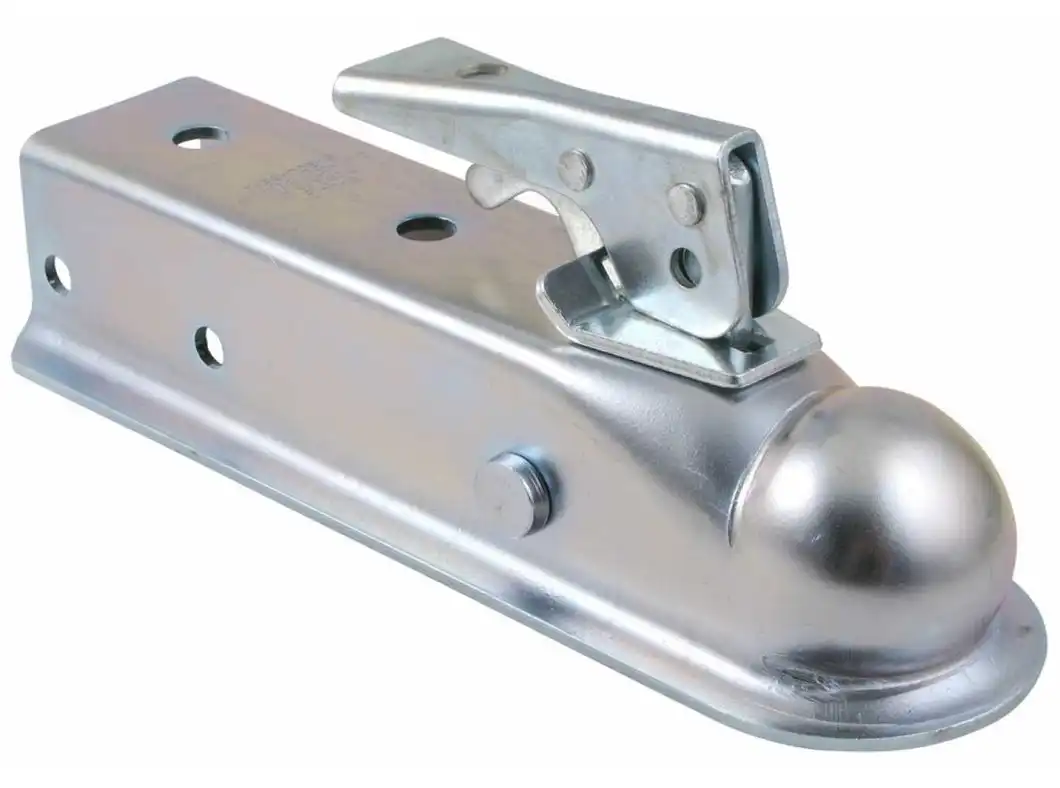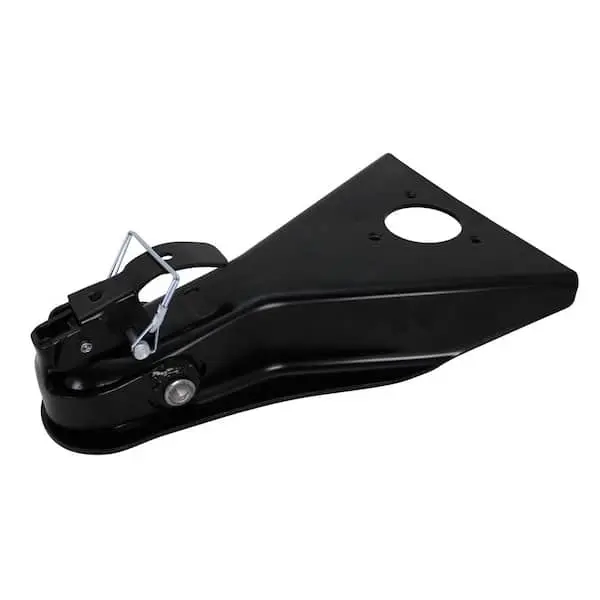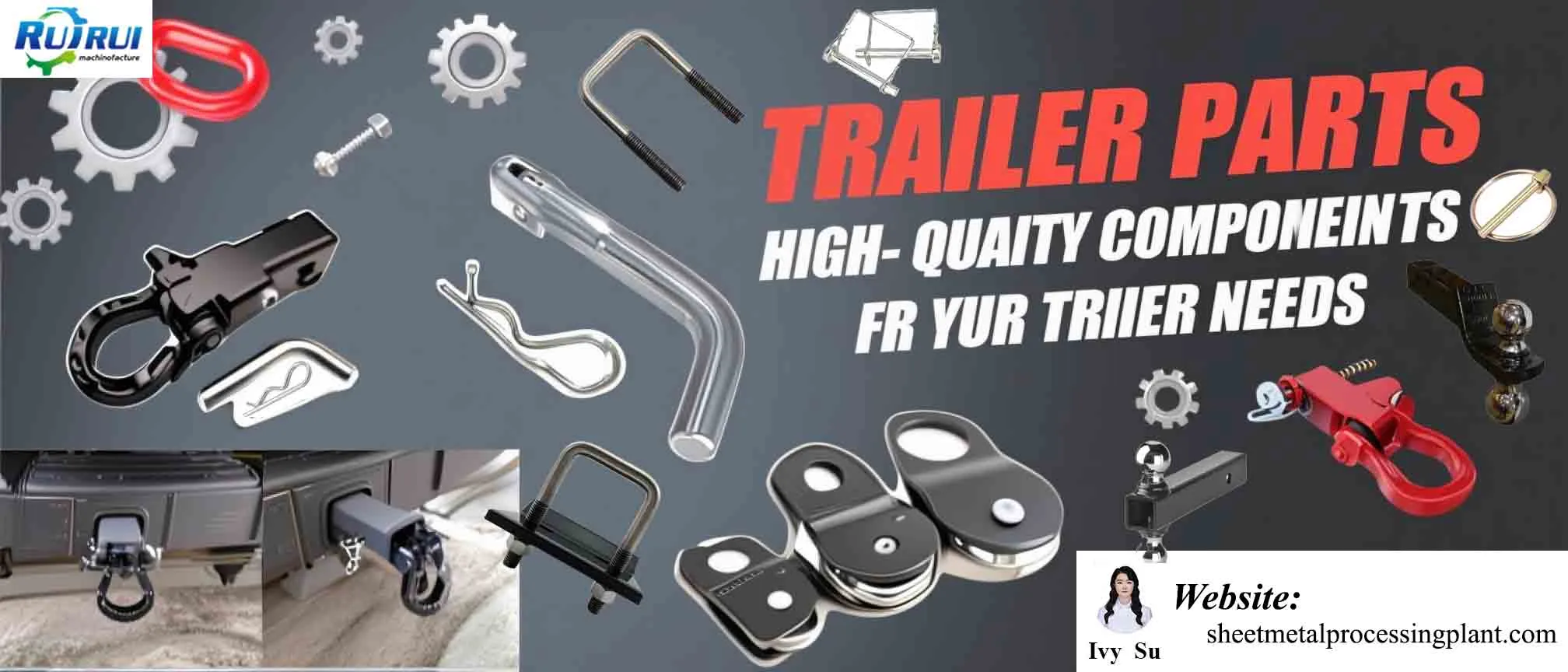How Vehicle-Specific Trailer Couplers Reduce Wear and Maintenance Costs?
2025-10-28 14:09:27
Every fleet manager and trailer owner has faced the same frustrating scenario: premature wear on coupling components, uneven tire degradation, and mounting repair bills that cut into profitability. The culprit often lies in a mismatched connection between vehicle and trailer. Vehicle-Specific Trailer Couplers are engineered to eliminate these costly problems by ensuring optimal fit, load distribution, and mechanical alignment. This article reveals how selecting the right coupler configuration can extend equipment lifespan and dramatically reduce your total maintenance expenditure.

Understanding Vehicle-Specific Trailer Coupler Design
Vehicle-Specific Trailer Couplers represent a precision-engineered approach to towing connectivity. Unlike universal couplers that attempt to serve multiple applications, these specialized components are manufactured to match specific vehicle towing capacities, hitch heights, and structural mounting requirements. The design process incorporates vehicle manufacturer specifications, including frame strength ratings, suspension geometry, and gross vehicle weight ratings.
-
Engineering Principles Behind Proper Coupler Selection
The fundamental principle governing Vehicle-Specific Trailer Coupler effectiveness centers on load path optimization. When a Trailer Coupler precisely matches the vehicle's hitch configuration, mechanical stresses distribute uniformly across mounting points rather than concentrating at weak junctures. This engineered compatibility prevents stress risers that accelerate metal fatigue and structural failure. Material selection also plays a critical role, with high-grade steel alloys and precision casting techniques ensuring dimensional accuracy within thousandths of an inch. Advanced manufacturing facilities like those operated by specialized producers utilize CNC machining and progressive stamping to achieve these tolerances consistently across production runs.
-
Material Compatibility and Durability Factors
Material science directly influences maintenance intervals and component longevity. Vehicle-Specific Trailer Couplers manufactured from cold-rolled steel exhibit superior resistance to deformation under cyclic loading compared to mild steel alternatives. Surface treatments including powder coating, galvanization, and electrophoresis create protective barriers against corrosion initiation. When couplers incorporate materials compatible with both vehicle and trailer metallurgy, galvanic corrosion between dissimilar metals is prevented. This electrochemical stability extends service life significantly, particularly in environments exposed to road salt and moisture. Quality manufacturers subject materials to rigorous testing protocols including salt spray exposure and tensile strength verification to guarantee performance under harsh operating conditions.
How Improper Coupler Fit Accelerates Component Wear
Misaligned coupling systems create cascading mechanical problems throughout the entire towing assembly. When a Trailer Coupler does not properly mate with the vehicle hitch ball, micro-movements occur during operation that generate friction and heat at contact surfaces. This phenomenon, known as fretting wear, progressively enlarges the ball socket and creates dangerous play in the connection.
-
Stress Concentration and Failure Mechanisms
Engineering analysis reveals that improper fit creates stress concentrations exceeding design limits by factors of three to five times. These localized high-stress zones initiate crack propagation in structural members, beginning microscopically and eventually causing catastrophic failure. Vehicle-Specific Trailer Couplers designed with precise tolerances eliminate stress concentration by distributing loads according to structural capacity. The coupling geometry matches the vehicle's load transfer characteristics, preventing overloading of frame sections not intended to bear trailer tongue weight. This engineered approach preserves structural integrity over hundreds of thousands of towing cycles rather than requiring replacement after several thousand uses.
-
Impact on Auxiliary Systems and Components
Beyond primary structural concerns, improper coupler selection affects brake systems, electrical connections, and suspension components. When vertical alignment between vehicle and trailer varies from optimal specifications, brake actuator mechanisms experience binding and premature wear. Surge brake couplers particularly require precise height matching to function correctly, as hydraulic activation depends on controlled compression during deceleration. Electrical connections suffer from tension and flexing when coupler geometry forces wiring harnesses into unnatural positions. Vehicle suspension components endure asymmetric loading that accelerates bushing wear and spring fatigue when the Trailer Coupler creates an improper weight distribution pattern.
Cost Analysis of Proper vs. Improper Coupler Selection
Financial implications of coupler selection extend far beyond the initial purchase price. Comprehensive lifecycle cost analysis demonstrates that Vehicle-Specific Trailer Couplers deliver return on investment through multiple channels including reduced maintenance frequency, extended component lifespan, and decreased downtime expenses.
-
Direct Maintenance Cost Reduction
Documented case studies from commercial fleets show maintenance cost reductions ranging from thirty to fifty percent when transitioning from universal to Vehicle-Specific Trailer Couplers. These savings manifest through longer intervals between bearing replacements, reduced brake component wear, and elimination of emergency roadside repairs. The precision fit characteristic of properly specified couplers prevents the accelerated wear patterns that necessitate frequent inspections and part replacements. Material quality also contributes to cost reduction, as corrosion-resistant finishes and hardened steel construction resist environmental degradation without requiring protective maintenance interventions.
-
Indirect Operational Savings
Operational efficiency improvements from proper coupler selection produce significant economic benefits beyond direct maintenance expenses. Fuel consumption decreases when Vehicle-Specific Trailer Couplers maintain optimal towing geometry, as aerodynamic drag and rolling resistance remain minimized. Driver satisfaction and safety improve when coupling and uncoupling operations proceed smoothly without struggle or misalignment issues. Equipment utilization rates increase because trailers spend more time in service rather than undergoing repair. Insurance costs may decrease as accident rates decline due to improved connection reliability. These cumulative benefits often exceed direct maintenance savings over multi-year operational periods.

Manufacturing Excellence and Quality Standards
Production quality directly determines Vehicle-Specific Trailer Coupler performance and longevity. Leading manufacturers implement comprehensive quality management systems encompassing design validation, process control, and final inspection protocols. These systematic approaches ensure every unit meets stringent dimensional and material specifications.
-
Advanced Production Technologies
Modern coupler manufacturing employs sophisticated technologies including progressive die stamping, laser cutting, and robotic welding to achieve consistent quality at scale. Progressive stamping operations produce complex geometries in single production sequences, eliminating variation between manufacturing steps. Laser cutting systems create precise perimeters and mounting holes with minimal heat-affected zones that could compromise material properties. Robotic welding applies consistent penetration and fusion characteristics across all weld joints, preventing weak points that could initiate failures. These automated processes, combined with statistical process control monitoring, maintain dimensional accuracy within specifications tighter than traditional manufacturing methods achieve.
-
Certification and Compliance Requirements
Reputable Vehicle-Specific Trailer Coupler manufacturers maintain certifications including ISO 9001 for quality management, ISO 14001 for environmental systems, and industry-specific standards for safety-critical components. These certifications require documented procedures, regular audits, and continuous improvement initiatives. Compliance with international standards ensures products meet regulatory requirements across different markets while providing customers with verified quality assurance. Manufacturers who invest in certification demonstrate commitment to excellence that translates directly into product reliability and performance consistency.
Selection Criteria for Optimal Performance
Choosing the correct Vehicle-Specific Trailer Coupler requires systematic evaluation of multiple technical parameters. Vehicle specifications, trailer characteristics, and operational requirements must align to achieve optimal system performance and maintenance cost reduction.
-
Load Capacity and Safety Margins
Trailer Coupler load ratings must exceed maximum anticipated tongue weights with adequate safety margins. Professional engineers recommend selecting couplers rated at minimum one-hundred-twenty-five percent of maximum tongue weight to account for dynamic loading during acceleration, braking, and road irregularities. Weight distribution systems and sway control mechanisms impose additional loads that must factor into capacity calculations. Vehicle-Specific Trailer Couplers designed for particular applications incorporate these factors into their ratings, providing built-in safety margins without requiring users to perform complex calculations. Material strength, cross-sectional geometry, and fastener specifications all contribute to establishing reliable load capacities that prevent overload failures.
-
Dimensional Compatibility Verification
Precise dimensional matching between coupler, vehicle hitch, and trailer tongue represents the foundation of proper installation. Ball size must match the coupler socket diameter exactly, as even minor mismatches create excessive wear. Mounting bolt patterns must align with available hole locations without requiring frame modifications that could compromise structural integrity. Height adjustability requirements depend on vehicle suspension characteristics and loading conditions that affect ride height. Adjustable channel couplers provide vertical positioning flexibility for operators using multiple tow vehicles, while maintaining rigid connection once properly set. Verification measurements should be conducted with vehicles and trailers in loaded operating condition rather than empty state to ensure realistic alignment assessment.
Maintenance Best Practices for Extended Service Life
Even premium Vehicle-Specific Trailer Couplers require proper maintenance to deliver maximum service life and performance reliability. Systematic inspection procedures and preventive maintenance protocols preserve component condition and detect emerging problems before they cause failures.
-
Inspection Protocol Implementation
Effective maintenance programs incorporate regular inspection schedules based on operating hours or distance intervals. Visual examinations should identify corrosion initiation, surface cracks, weld integrity, and wear patterns at ball sockets and latch mechanisms. Dimensional measurements using precision tools detect socket enlargement and ball diameter reduction that indicate replacement necessity. Fastener torque verification ensures mounting bolts maintain proper tension without loosening from vibration. Lubrication points require appropriate grease application to prevent friction-related wear, though excess lubrication attracts contaminants that accelerate degradation. Documentation of inspection findings enables trend analysis that predicts component lifespan and optimizes replacement timing.
-
Protective Treatments and Upgrades
Surface protection maintenance extends Trailer Coupler service life significantly in corrosive environments. Periodic application of rust-inhibiting treatments to exposed steel surfaces prevents oxidation initiation. Damaged powder coating or plating requires prompt repair to prevent localized corrosion cells from developing. Upgrade options including stainless steel components and enhanced corrosion-resistant coatings merit consideration for severe-duty applications or coastal environments where standard protection proves insufficient. Investment in protective treatments and premium materials reduces long-term replacement frequency, offsetting initial cost premiums through extended service intervals.

Conclusion
Vehicle-Specific Trailer Couplers fundamentally transform towing system economics through precision engineering that eliminates premature wear and reduces maintenance requirements. Proper selection delivers measurable cost savings while enhancing operational safety and reliability across diverse applications.
Cooperate with Qingdao RUIRUI Machinary Co., LTD.
As a China Vehicle-Specific Trailer Coupler factory with advanced manufacturing capabilities, Qingdao RUIRUI Machinery delivers precision-engineered coupling solutions at competitive prices. Our China Vehicle-Specific Trailer Coupler supplier credentials include ISO 9001 certification and expertise across progressive stamping, laser cutting, and multiple surface finishing processes. Whether you need High Quality Vehicle-Specific Trailer Coupler components or custom trailer accessories, our China Vehicle-Specific Trailer Coupler manufacturer status ensures access to eight production lines generating 130,000 annual units. We serve as a China Vehicle-Specific Trailer Coupler wholesale provider to over 80 countries, offering Vehicle-Specific Trailer Coupler for sale with technical support and after-sales service. Contact us at info@qdkshd.com to discuss your requirements and receive competitive Vehicle-Specific Trailer Coupler price quotations. Save this resource for reference when selecting your next coupling system.
References
1. "Trailer Coupling Systems: Engineering Analysis and Performance Optimization" - Journal of Mechanical Engineering Research, Thompson, R.J. and Martinez, S.L., 2024
2. "Material Selection for Heavy-Duty Towing Applications" - Society of Automotive Engineers Technical Paper Series, Davidson, K.M., 2023
3. "Lifecycle Cost Analysis of Commercial Fleet Trailer Equipment" - Transportation Research Board Special Report, Anderson, P.W. and Chen, L., 2024
4. "Corrosion Protection Methods for Trailer Coupling Components" - NACE International Conference Proceedings, Williams, D.H., 2023
Send Inquiry
You may like
